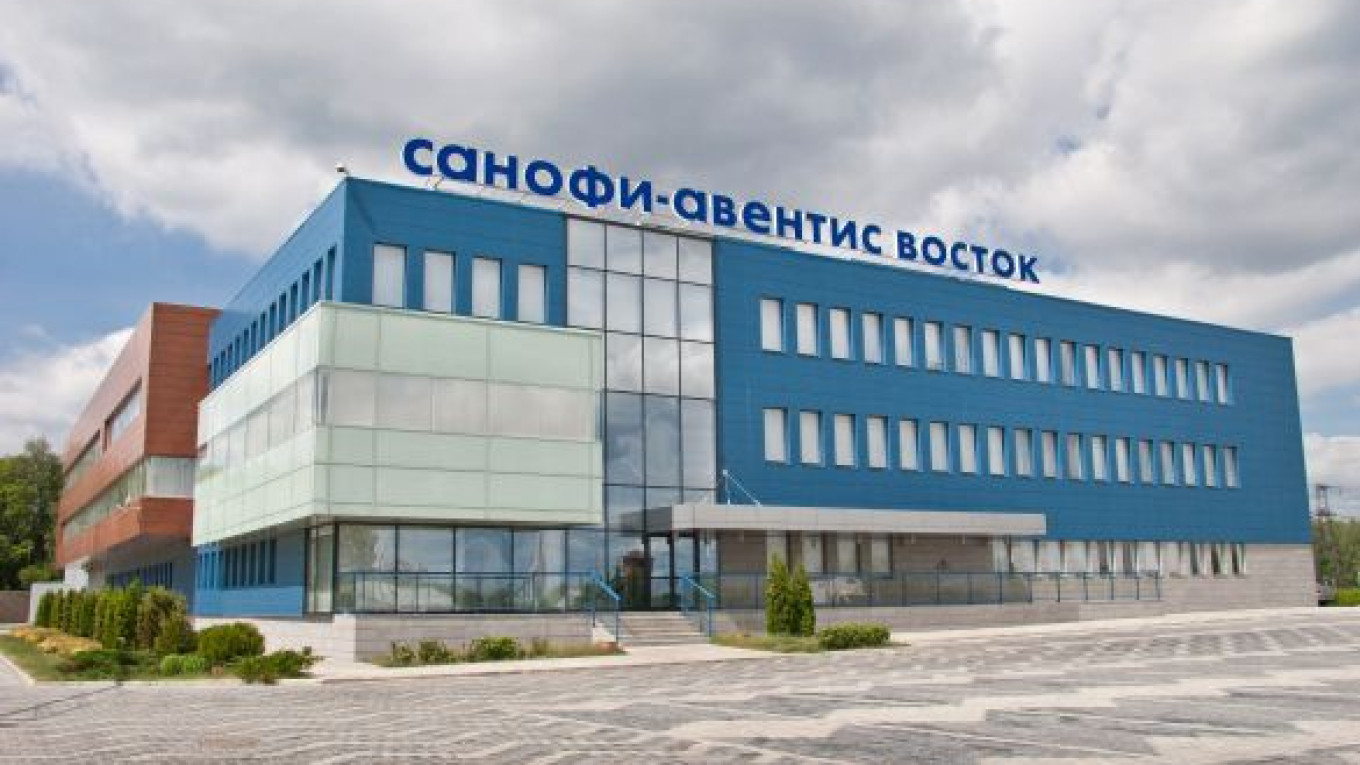ST. PETERSBURG — Sanofi-Aventis, Europe's biggest drug maker, reopened an insulin plant in southwestern Russia under its own banner on Saturday, in a move hailed by the government as a step toward increasing the country's pharmaceuticals self-sufficiency.
The Sanofi-Aventis Vostok plant, located in the Oryol region, 350 kilometers southwest of Moscow, will produce human and analog insulin — medicines Russia is currently importing from Germany — as well as a new model of insulin-delivery pens.
The most difficult decision for pharmaceuticals companies entering emerging markets is deciding where to invest, and a key factor is government policies aimed at modernizing the pharmaceuticals industry, said Olivier Charmeil, Sanofi-Aventis' senior vice president for East Asia.
"And it's very clear that one of the priorities of the [Russian] government is definitely health care," he said at the opening ceremony, held at the St. Petersburg International Economic Forum.
Sanofi-Aventis' acquisition of the plant last year was welcomed by the government as a step toward increasing the country's medical self-sufficiency. Replacing medical imports with domestic products is part of President Dmitry Medvedev's plan to modernize the country's pharmaceuticals industry, one of his five priority sectors for modernization.
Industry and Trade Minister Viktor Khristenko said Saturday that Russia's pharmaceuticals industry needed 188 billion rubles ($6 billion) of investment over the coming decade, adding that the government would appropriate as much as 120 billion rubles of state funds for research and development.
"We are ready to provide financial resources to pharmaceutical companies. … The development of Russian pharmaceuticals will not go through without help from the state," he told reporters at the forum, Reuters reported.
The Sanofi-Aventis facility will become a base for expanding production in the country, as the company hopes to eventually start manufacturing other products in its portfolio, said Patrick Aghanian, the company's chief in Russia.
"We hope it will be the base for expanding into other therapeutic areas. … We have a big portfolio of cardiovascular products [and] oncology products, not to mention generics," he told The Moscow Times in an interview after the opening ceremony.
Sanofi-Aventis has been producing a vaccine for poliomyelitis in Russia since 2008 and is likely to expand production, Aghanian said.
By the end of the year, the company hopes that the factory will be re-equipped to begin production on a new model of the insulin pen, which will be disposable and replace the old refillable model the plant is currently producing.
"We are going to [produce] … the most modern insulin pen in our portfolio, and this requires the new machinery," Aghanian said.
Aghanian declined to disclose the volume of investment into the plant, but Federal Anti-Monopoly Service chief Igor Artemyev said earlier this year that the French firm would invest hundreds of millions of euros into the project.
Aghanian said the facility would reach capacity by 2012 and become profitable by 2014.
In April, the government’s commission on foreign investment approved Sanofi-Aventis' purchase of a controlling stake in the plant from private investors, including the Polish drug maker Bioton.
A Message from The Moscow Times:
Dear readers,
We are facing unprecedented challenges. Russia's Prosecutor General's Office has designated The Moscow Times as an "undesirable" organization, criminalizing our work and putting our staff at risk of prosecution. This follows our earlier unjust labeling as a "foreign agent."
These actions are direct attempts to silence independent journalism in Russia. The authorities claim our work "discredits the decisions of the Russian leadership." We see things differently: we strive to provide accurate, unbiased reporting on Russia.
We, the journalists of The Moscow Times, refuse to be silenced. But to continue our work, we need your help.
Your support, no matter how small, makes a world of difference. If you can, please support us monthly starting from just $2. It's quick to set up, and every contribution makes a significant impact.
By supporting The Moscow Times, you're defending open, independent journalism in the face of repression. Thank you for standing with us.
Remind me later.


